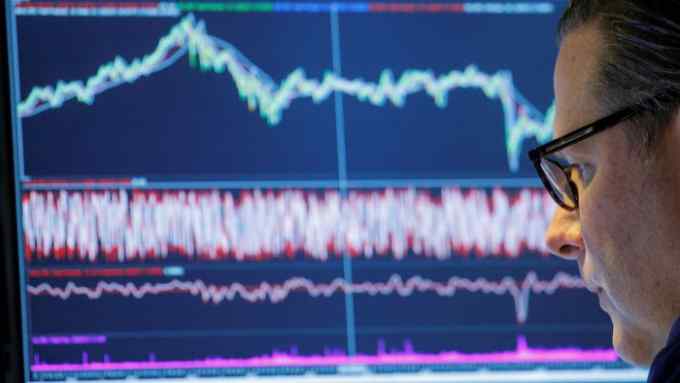Net inflows into UBS ETFs this year have been only to ESG funds
Simply sign up to the Exchange traded funds myFT Digest -- delivered directly to your inbox.
Interested in ETFs?
Visit our ETF Hub for investor news and education, market updates and analysis and easy-to-use tools to help you select the right ETFs.
All of the net inflows collected by UBS exchange traded funds this year are into sustainable products, while its other ETFs have seen aggregate net outflows.
UBS Asset Management said its sustainable product range was “really where the growth is”, adding that the sales trend had been driven by switching from other funds as well as new money.
The asset manager has attracted net inflows of $9.8bn to its European ETFs over the year to date, including $10.2bn of net flows into sustainable investment products.
Clemens Reuter, global head of ETFs at UBS AM, said that while the business had “definitely expanded” its ETF assets, clients were also “switching mandates to sustainable”.

This article was previously published by Ignites Europe, a title owned by the FT Group.
Reuter said UBS had benefitted from its wide range of sustainable ETFs, which offer a variety of “shades of green”.
This year UBS has launched 17 sustainable ETFs, including a range with Paris-aligned benchmarks.
“Light-green” products include the $2.2bn UBS S&P 500 ESG ETF. So-called dark-green ETFs include those that only track companies with the best environmental, social and governance scores.
Reuter said darker-green funds, those classified as article nine under the EU’s Sustainable Finance Disclosure Regulation, had “not taken off yet”, but he expected demand to rise in 2022.
When the firm launched its first socially responsible ETFs 10 years ago, there were “internal questions” about the initiative, but the decision to do so had “paid off very well”, Reuter said.
Inflows to sustainable funds have helped to push UBS’s ETF business above $100bn in assets globally, with the bulk of these products domiciled in Europe.
Reuter expected demand for sustainable products to continue for at least the next 18 months.
Switching to sustainable products has been more apparent at UBS than at Europe’s other big ETF providers this year.
At none of the other eight largest ETF firms do aggregate flows into sustainable products outweigh flows to other products to the extent seen at UBS, Morningstar data suggest. Each of these eight firms manages more than €50bn of ETFs, together accounting for almost 90 per cent of industry assets.
At iShares, DWS, Vanguard, Lyxor and Invesco, inflows to non-sustainable ETFs are larger than for sustainable products so far this year. Amundi and State Street Global Advisors buck this trend, although the two firms have aggregate net inflows to both sustainable and non-sustainable ETFs, unlike UBS.
Across all European ETFs, sustainable products have garnered more than 40 per cent of net flows over the first 10 months of the year, provisional Morningstar data show.
Strong demand for ESG ETFs has come despite passive products facing more challenges than actively managed funds in adapting to sustainable investing.
For example, if passive funds change the benchmark they track in order to be categorised as article eight under SFDR, they can be seen as a different investment proposition, introducing the risk of clients withdrawing.
*Ignites Europe is a news service published by FT Specialist for professionals working in the asset management industry. It covers everything from new product launches to regulations and industry trends. Trials and subscriptions are available at igniteseurope.com.

Click here to visit the ETF Hub

Comments